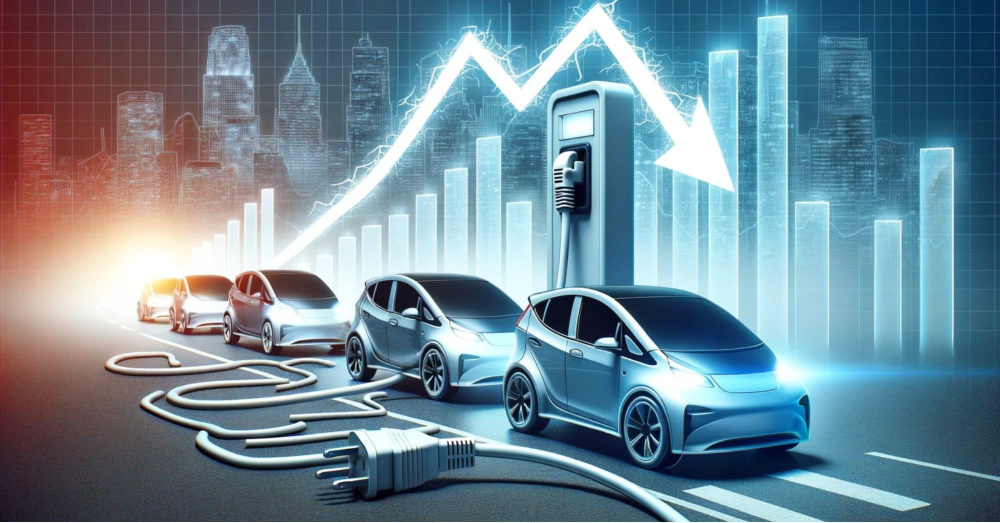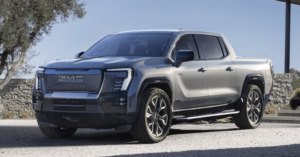
The early movement to bring electric vehicles to the market quickly and aggressively seems to be backfiring for most brands. Is it time to reevaluate?
Anyone, including automotive executives, who expected electric vehicles to be immediately accepted as replacements for gas and diesel-powered vehicles is fooling themselves. Like anything else, the upward trajectory of this new part of the auto market was sure to face challenges and slow sales during the process. Still, very few predictions showed the slowing of EVs taking place this soon in the movement toward electrification.
Why are electric vehicles getting harder to sell?
The initial cost is a serious turn-off
Although electricity is much cheaper than gasoline, buying an EV and installing an at-home charging station can be expensive. In general, electric vehicles are $15,000 to $20,000 more expensive than their gasoline counterparts. Most products cost much more than expected, thanks to the current economy, and interest rates for loans are much higher than they were a year ago. This leads many consumers to keep their current vehicles and avoid buying a new model that might cost up to $60,000 for a base EV.
Charging times take too long
Road trips are part of the American culture, but EVs tend to limit the driving distance and range consumers can enjoy. If you regularly drive hundreds of miles from home for your weekend adventures or when you want to visit family during holidays or in the summer, the charging time at public stations can get annoying fast. Mos charging is done overnight at home, but when you want to travel, an EV limits how far you can go without stopping for at least an hour to recharge.
The limited driving range is a hard sell
Most electric cars can travel between 250 and 300 miles on a single charge, but that’s not enough. In order to maintain and protect the extremely expensive battery pack, drivers must limit their distance to no more than 80% of the actual range. Once the battery reaches 10%, it should be recharged and only reach 90%. This is to protect the battery from damage and a potentially shortened life span. Because of this, EV drivers are limited to 80% of the actual driving range.
Where are all the charging stations?
Although many electric vehicles are charged at home using a Level 2 charger, there are times when drivers need to charge on the road. Unless you live in an area that has adopted EVs as the future of driving, you might not find very many charging stations. Compare this to the number of gas stations you pass every day, and you’ll realize the shortage of charging stations. Part of the allure of EVs is home charging, but that doesn’t help when you’re away from home and need a charger.
How much will my electric bill increase?
Some people are concerned about spending much more on electricity, especially if the EV is the second or third car in a home. That means they’re already paying for gas or diesel for the other vehicles and now have to pay more for electricity as well. If the EV is a replacement for a gas-powered vehicle, the costs will be much less to refuel the EV than the previous vehicle, but some drivers don’t appreciate waiting to see the cost until the end of the month.
Replacing the batteries is extremely expensive
You can buy a gas or diesel-powered vehicle and drive it for twenty years without ever replacing the engine. While this doesn’t happen often, we know for certain that EV batteries will need to be replaced at some point. Over time, electric vehicles lose capacity in the batteries, which reduces the driving range. The cost of replacing EV batteries can be as much as $15,000, which would lead many drivers to search for a new vehicle instead of replacing the batteries.
Where can I buy an EV?
Can you visit your local Chevy dealer and drive away in the Silverado EV? Does every Ford dealer sell the F-150 Lightning? The answer is “no.” Some dealers don’t sell the electric vehicles offered by their automotive brands, which could make it difficult to find the EV you want to drive. In the past, dealers had trouble keeping EVs in stock, but that’s not the case right now. Still, you have to find a dealer that has the electric car, SUV, or truck you want to drive.
Why has the EV market slowed? As we’ve learned more about these vehicles, many consumers have found they prefer the convenience and ease of gas and diesel-powered vehicles over EVs. Will this change in the near future?
This post may contain affiliate links. Meaning a commission is given should you decide to make a purchase through these links, at no cost to you. All products shown are researched and tested to give an accurate review for you.








